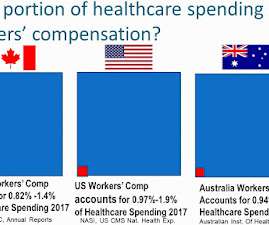All Employee Medical Information Isn’t Protected by HIPAA
HR Bartender
FEBRUARY 23, 2017
However, with this discussion comes a lot of disclosures about medical information. Meanwhile, I received the Foley & Lardner LLP newsletter and it included an article from our friend Mark Neuberger on the Health Insurance Portability and Accountability Act (HIPAA). or “My spouse/child/etc.












Let's personalize your content